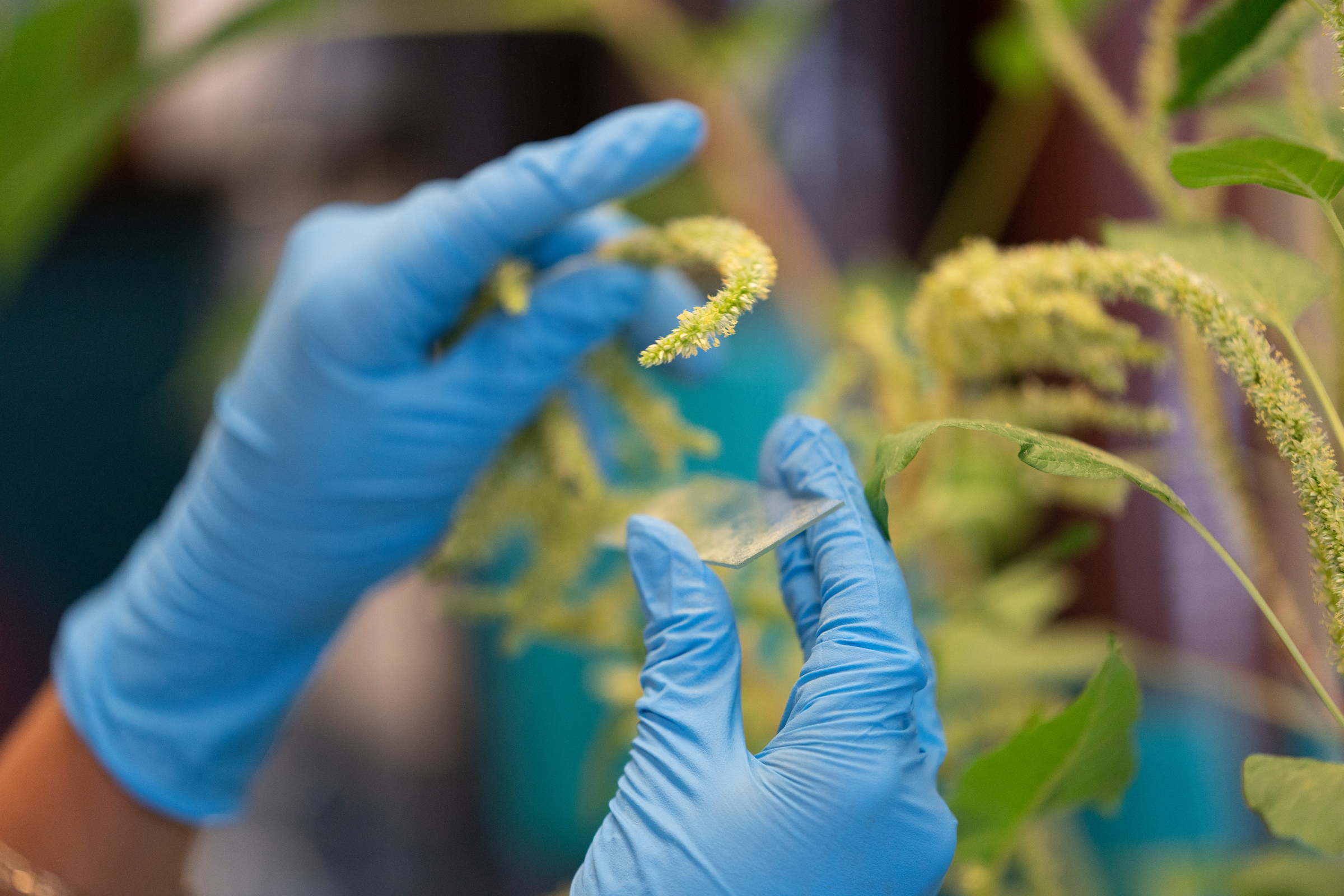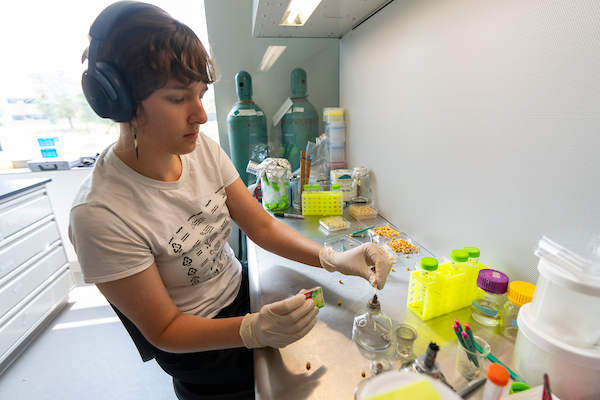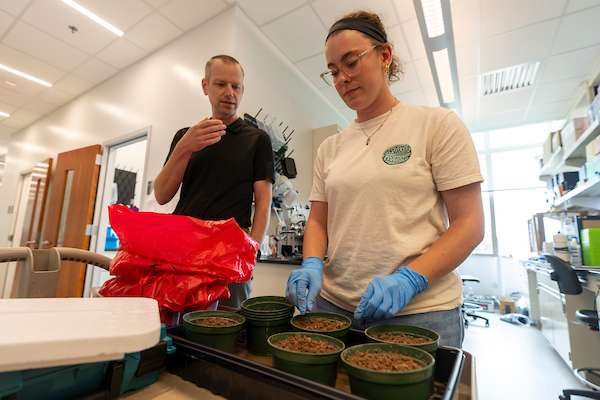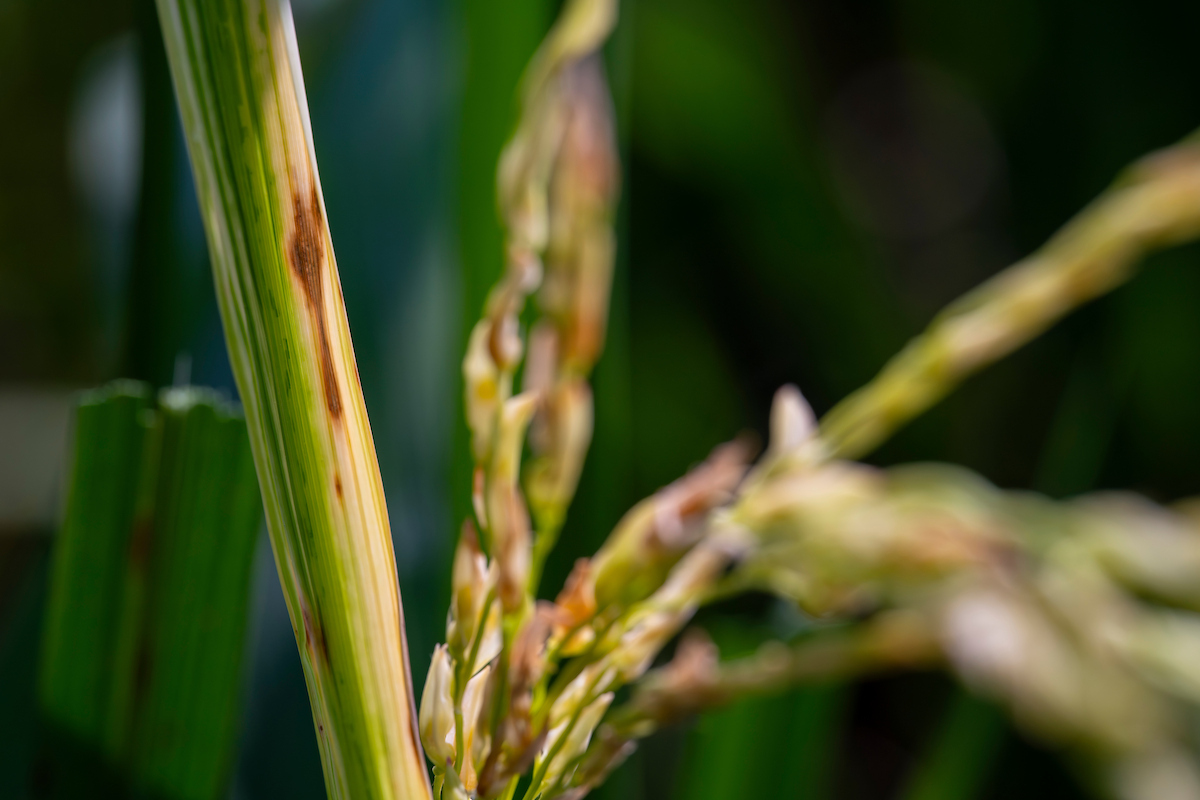
Undergraduate Programs
B.S. in Bioenvironmental Science
A degree in Bioenvironmental Sciences (BESC) equips you to play a direct role in developing and implementing solutions to environmental problems. Our graduates often enter careers associated with prevention and/or remediation of environmental hazards, such as microbial threats, toxic wastes, and other damage to fragile ecosystems. Use of hands-on experiences in our classrooms, laboratories, and internship opportunities ensures that you gain experience with the concepts and the technology essential for prevention, assessment, and abatement of environmental problems. Students in BESC have the unique opportunity to build their networking skills prior to graduation by participating in our student chapter of the National Association of Environmental Professionals. Each semester the club hosts several speakers from industry and governmental agencies involved in environmental management careers.
Given the inherent interdisciplinary nature and strengths of the Department of Plant Pathology & Microbiology, this department houses the innovative and popular Bioenvironmental Sciences degree program. Students pursuing a science-intensive curriculum and careers in the sciences, environmental remediation, or science-based professional school programs are directed to our flagship Bioenvironmental Sciences (BESC) degree (with an undergraduate honors option). This degree also appeals to students who may be interested in a broad range of environmental and natural resource policy coursework.
The Bioenvironmental Sciences (BESC) curriculum at Texas A&M University is a progressive and exciting degree for all students with an interest in solving complex environmental problems. This degree program is challenging, multi-disciplinary, relevant and flexible. The requirements to obtain a satisfying career go well beyond the classroom. The emphasis areas in the BESC program were designed from input within the environmental industry. Our students are well prepared for careers in the environmental arena.

Minor in Bioenvironmental Sciences
We also offer a Minor in Bioenvironmental Sciences for student outside of the major who would like to add the distinction of BESC coursework to their degree plans and transcript.
Special Programs and Opportunities
Undergraduate Honors Program
In addition, BESC offers an Undergraduate Honors Program. Students with at least a 3.5 cumulative GPR are eligible to enroll in Honors courses, which provide an enriched learning experience with faculty. This is the first Undergraduate Honors Program available within the College of Agriculture and Life Sciences.
High-Impact Learning
High-impact learning happens when students are actively engaged in the educational process, expanding learning beyond the classroom. High-impact learning provides hands-on experience and the ability to work closely in a diverse setting. Opportunities include education abroad, undergraduate research, course field trips and internships.
National Association of Environmental Professionals
Students in BESC have the unique opportunity to build their networking skills prior to graduation by participating in our student chapter of the National Association of Environmental Professionals. Each semester the club hosts several speakers from industry and governmental agencies involved in environmental science careers.
The Texas A&M Advantage
- Enjoy the flexibility to design your personalized course plan with electives that appeal to your interests.
- You will have career advantages because this degree was created with consultation from industry leaders about trends in the career field.
- Gain a strong science background that will prepare you for graduate school or employment in environmental agencies, advocacy and education groups, and environmental/health & safety branches.
What Kind of Job Can I Get?
Students will be prepared for a number of environmental sciences career choices in such areas as research and development, environmental consulting, remediation of wastes, site assessment and environmental sampling, and environmental law.

Plant Pathology and Microbiology News

AgriLife Research leads rice delphacid and hoja blanca virus studies
Scientists mapping pest behavior, identifying viral drivers and shaping new producer guidance for 2026 planting

Texas A&M AgriLife tackles rice delphacid devastation
Texas A&M AgriLife experts are serving as key research and Extension partners in a new multistate response led by USA Rice to address the devastating spread of rice delphacid, an invasive pest now threatening thousands of acres across Texas, Louisiana, Arkansas and Mississippi.